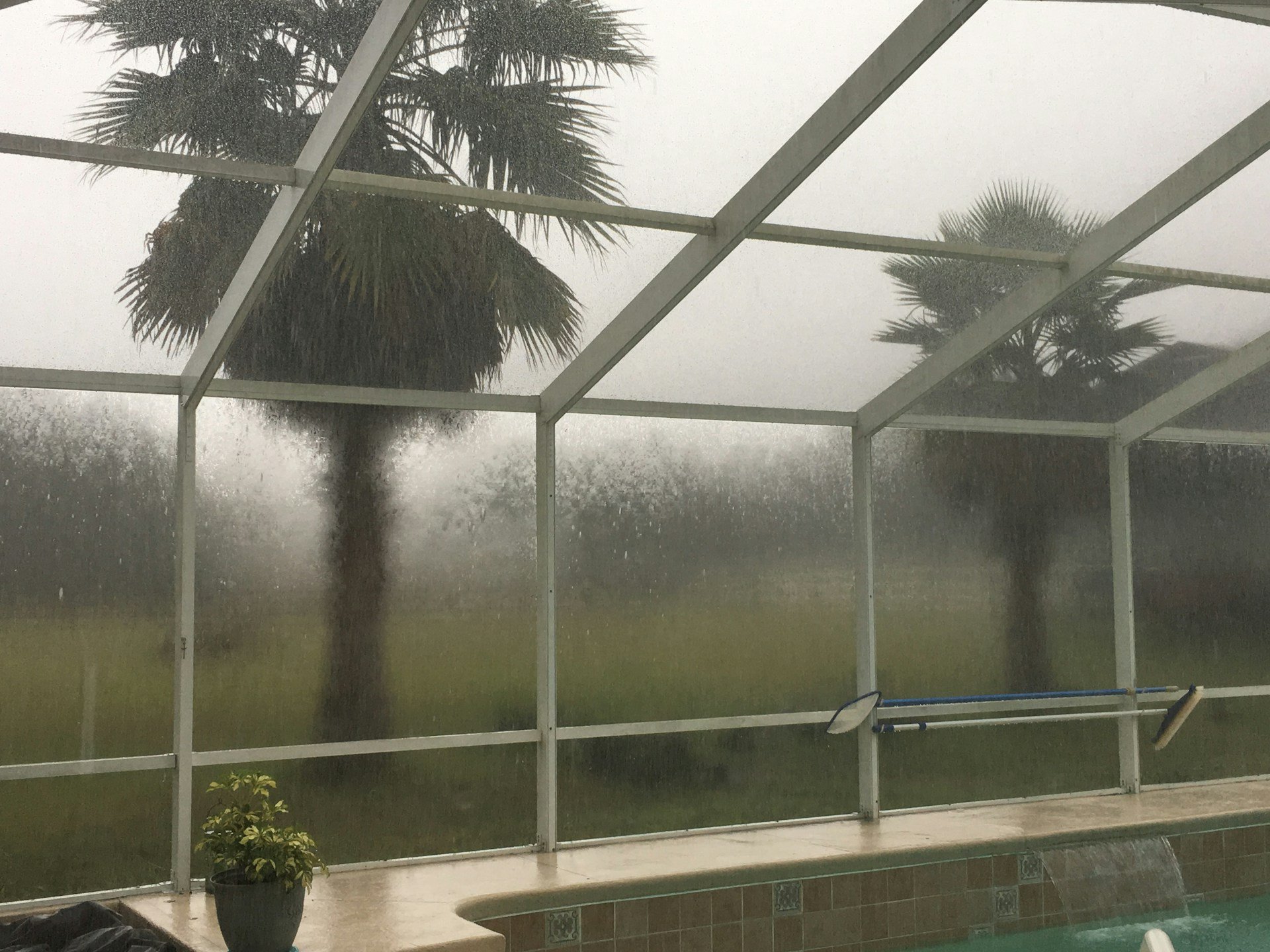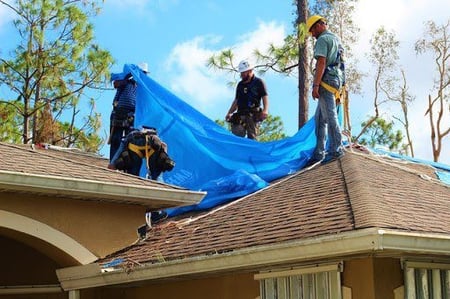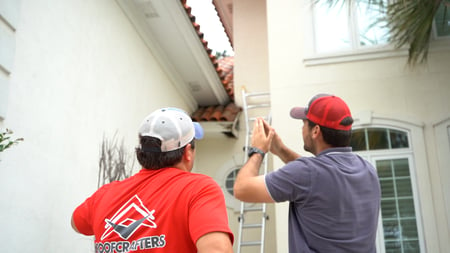Can You Replace Your Roof in Florida During the Rainy Season?
May , 2025 | 6 min. read

If you’ve lived in Florida for more than five minutes, you know the rainy season isn’t just a mild inconvenience; it’s a full-on personality trait of the state. From daily afternoon downpours to sudden tropical storms that make you question whether you need a canoe or a car, the weather here keeps us all on our toes.
So, what happens when your roof starts leaking right in the middle of it all? Is it even possible to replace a roof in Florida during the rainy season? Florida roofing contractors like RoofCrafters are seasoned pros who've learned how to work around the weather.
With the right strategy, the rainy season doesn't have to delay a critical roof installation. That being said, let’s discuss the risks, how we make it work, and how to choose the best contractor fit for the job!
Florida’s Rainy Season: A Quick Reality Check

Before we go any further, let’s define the beast: Florida’s rainy season typically runs from late May through mid-October, peaking in the summer months. During this time, the state sees frequent afternoon thunderstorms, increased humidity, and the looming threat of tropical storms or hurricanes.
It’s not a great time for beach days or outdoor weddings, and many people assume it’s also a no-go for roof replacements. But Florida roofing contractors are seasoned pros who’ve learned how to work around the weather. With the right strategy, the rainy season doesn’t have to delay a critical roof installation.
So… Can You Replace Your Roof in Florida During the Rainy Season?
Yes, you absolutely can replace your roof during the rainy season in Florida. But (and it’s a big “but”), it requires careful planning, flexibility, and a roofing crew that knows how to navigate the elements. Let’s explore what that really means.
The Risks of Replacing a Roof During Rainy Weather

Let’s not sugarcoat it: replacing a roof in the rain isn’t ideal. Here are some of the risks involved:
Moisture Damage
Roofing materials like underlayment, decking, and insulation are sensitive to moisture. If they get wet during installation, you risk future issues like mold, rot, and structural damage.
Safety Hazards
Roofing is already a risky job, and adding slick, wet surfaces mixes up the danger for workers. Most reputable contractors will halt installation if conditions become unsafe.
Project Delays
Rainy weather means unpredictable scheduling. Jobs may take longer to complete as roofers have to pause when the skies open up. If you’re hoping for a one-day turnaround, you might need to be more patient in the summer months.
How Roofing Contractors in Florida Manage Rainy Season Installs

The key to a successful rainy-season roof replacement? A contractor who knows what they’re doing. Florida-based roofing companies are no strangers to wet weather, and most have proven systems in place to manage it. Here’s how they make it work:
Weather Tracking and Scheduling
Good roofing companies monitor radar forecasts religiously and plan work in dry windows. Your contractor might start early in the morning before the afternoon storms roll in, or break the project into phases to minimize exposure.
Protective Coverings
When rain hits mid-installation, professional crews use industrial-grade tarps and waterproof barriers to cover any exposed areas. This protects your home from water intrusion while they wait out the weather.
Partial Replacements and Temporary Fixes
In cases where a full replacement isn’t feasible right away, a contractor might suggest temporary repairs or a partial replacement until a longer dry spell arrives. This can buy you time and prevent further damage.
When It Makes Sense to Replace Your Roof During the Rainy Season
Waiting until winter might sound tempting, but it’s not always the best move. However, you shouldn’t wait if your roof is already leaking, as putting off a replacement could lead to thousands of dollars in interior damage. From warped drywall to moldy insulation, water gets in fast and causes long-term problems.
If a storm recently blew through and your roof took a hit, time is of the essence. Many insurance companies also have deadlines for filing roof damage claims, so don’t delay your inspection or replacement. Not to mention, older roofs become ticking time bombs during the rainy season. The last thing you want is to be caught in a tropical storm with brittle shingles and compromised decking.
What to Expect From a Rainy Season Roof Replacement
Replacing a roof during the rainy season isn’t business as usual, so here’s what to keep in mind:
- Longer timelines: Even with perfect planning, rain delays happen. Be prepared for your project to take a few extra days.
- Flexible scheduling: Your roofer might adjust the install day based on weather conditions. Trust their judgment. They’re not ghosting you, they’re protecting your home.
- Solid communication: A good contractor will keep you in the loop, send progress photos, and walk you through the backup plan if rain interrupts the install.
How to Choose the Right Roofing Contractor for Rainy Season Work

Not every roofer is built for wet-weather installs. Here’s what to look for when hiring:
- Florida-based experience: You want someone who knows the state’s climate and has done this before.
- Emergency readiness: Ask what their plan is if rain starts mid-installation.
- Clear communication: Look for a contractor who will be upfront about delays, flexible scheduling, and progress updates.
- Strong reviews: Check online reviews and ask for references. Pay special attention to clients who had work done in the summer.
Replacing Your Roof During the Rainy Season
All in all, yes, you can replace your roof in Florida during the rainy season (if you do it right). Waiting out the storms might seem like the safe bet, but if your roof is already struggling, the rain won’t do you any favors. With an experienced, local contractor who knows how to schedule around the weather and keep your home protected, you can tackle a roof replacement in the middle of the wettest months.
So if your roof is leaking, sagging, or showing signs of serious wear, don’t put off repairs just because the clouds look moody. The best time to fix your roof is before it causes more damage, even if it’s July.
At RoofCrafters, we’ve been replacing roofs during Florida’s rainy season for decades. Our crews are trained to work safely, efficiently, and weather-smart, no matter what the forecast looks like. If your roof is leaking or showing signs of damage, don’t wait for winter. Be sure to hit that “Schedule an Inspection” button down below so that we can work together to keep your home protected, rain or shine.
My name is Cassie, and I’m the Content Manager here at RoofCrafters. I was born and raised in Chicago, Illinois, and made my way out to Florida post-college graduation. I’m incredibly passionate about writing and creating valuable content that helps others with the collaboration of my marketing team. When I’m not working, I enjoy shopping (a little too much), spending time at the beach, and reading!



